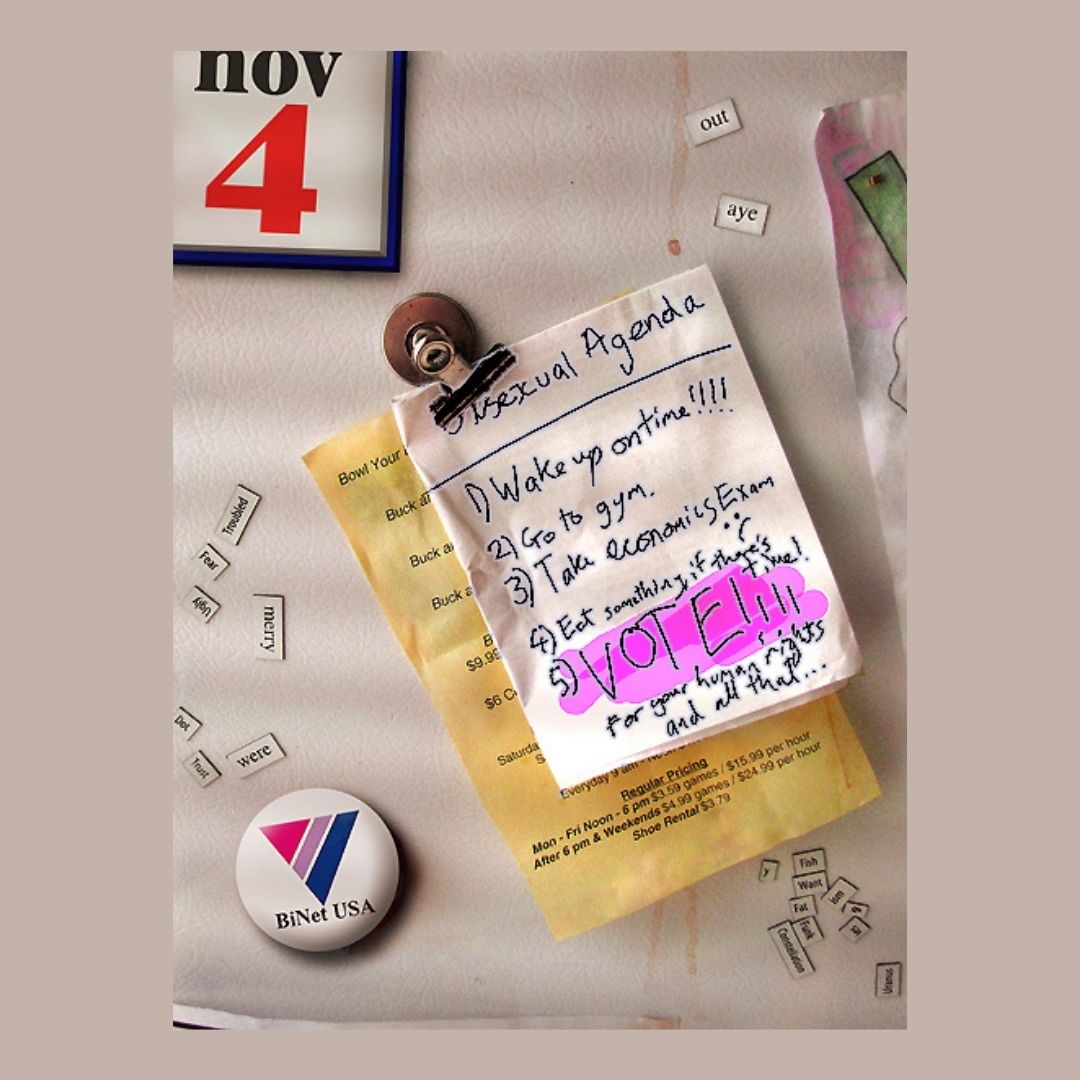By Ellyn Ruthstrom
If you are a queer citizen, the day after Election Day 2008 was certainly one of both elation and consternation. “Yes, We Did!” rang out across the land as we celebrated a new hope for change in the White House. But as word spread that there were setbacks in certain states on anti-GLBT initiatives, the election high was tempered with the reality that our struggle continues regardless of who moves into 1600 Pennsylvania Ave.
As always, you must start with the good news. Openly bisexual Rebecca Kaplan won her bid for a place on the Oakland, California City Council. Kaplan has ties to Massachusetts, as she went to MIT and back in 1991 conceived the second course on bisexuality in the U.S. (which BiWomen editor Robyn Ochs taught!) Small bi world, eh?
Jared Polis, a Democrat from Colorado, became the third openly gay member of the U.S. House of Representatives, joining Barney Frank (D-MA) and Tammy Baldwin (D-WI). Benjamin Cruz was elected as the first openly gay Senator at Large from Guam and out lesbian Kate Brown became Oregon’s Secretary of State, winning 59 percent of the vote. Pacific northwesterners can be proud of also electing the first openly gay mayor in Portland, Sam Adams.
Jason Bartlett’s reelection to the Connecticut House is important to note because he came out since his first election and the voters were obviously happy to return him to the State House. He is also one of very few openly gay African American legislators around the country. John Perez became the first openly gay person of color elected to the California State Assembly, winning with about 85 percent of the vote.
In 2004, Lupe Valdez became the first woman, the first Latina, and the first out lesbian ever elected as Sheriff in Dallas County, Texas. Despite being target-ed by the Republicans as a post they were determined to regain, Valdez was re-elected by her community in November.
Now for the bad news. I’m sure by now you are aware that Proposition 8 passed in California, which again made it illegal for same-sex couples to marry in that state. There will be court cases to challenge the results, but though new nuptials will be prevented, it looks like the same-sex couples that did marry may retain that status. Arizona and Florida also passed anti-marriage equality propositions, with Florida going a step farther by restricting partner recognition to unmarried straight couples as well. Arkansas voted by a 57-43 margin voted to ban all unmarried cohabiting couples (straight or same-sex) from adopting or serving as foster parents.
There is great sadness when those in our communities continue to see us and our families as deserving of less than equal status and protection. In analyzing the failure to vote down Proposition 8 in California, some say that there was complacency about it, an assumption that other people would get out and vote against it. From looking at the election results, 11 million Californians cast a vote in the presidential election, 62 percent for Obama. Only 10 million cast a vote on Proposition 8. If those one million voters were motivated enough to get to the polls to vote for a progressive candidate, then it was a missed opportunity to not have gotten them to also see the importance of voting on Proposition 8. It was a huge loss for California, but we can always learn from a political loss to be better prepared in the future.
To end on a high note, there was good news from my home state of Connecticut. The voters soundly rejected the idea of holding a Constitutional Convention that could challenge the court decision granting marriage equality earlier this year, and the first marriage licenses were issued on November 12th. New England is a trailblazing region on this issue, with Massachusetts and Connecticut granting state marriage rights, and Vermont and New Hampshire granting civil unions to same-sex couples. Rhode Island has been working hard on the issue and there may be some movement on it in 2009. Maine currently has a ban on same-sex marriage, but local activists are working behind the scenes to work for future change.
Social change takes time and effort. Speaking out, knocking on doors, donating, talking to neighbors and friends, voting, writing letters, calling our legislators, and taking to the streets are all part of the long process of shifting opinions in a democracy. We are the ones that make it happen. And we are the ones that will witness even more great change in our lifetimes. The sea change has already begun; let’s keep it moving.
Ellyn is a former editor of Bi Women.

